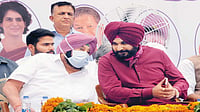From allegations of politicisation and acting as an extension of the Executive to those of judicial failure in upholding constitutionally guaranteed human rights, the Supreme Court has, in recent years, come under attack on a plethora of issues. While aspersions being cast on the commitment—or lack of it—among individual judges, and even Chief Justices of India, towards upholding constitutional values through judicial pronouncements isn’t new, judiciary as an institution has, arguably, never faced the crisis of credibility that it faces today. In an exclusive interview, Justice Deepak Gupta, who retired from the Supreme Court in May 2020, tells Puneet Nicholas Yadav all that he thinks is going wrong with the judiciary and suggests possible remedies.
From once being hailed for the judicial activism of its judges, the Supreme Court is now routinely singled out either for judicial overreach or judicial inaction; even ridiculed at times for being ‘too politicised’. Is the SC losing the perception battle?
This isn’t a totally accurate representation but yes, in part, it perhaps is. In a day, 99 per cent of the cases that the SC hears are those where the litigant has come with personal problems seeking relief. These matters don’t affect the public at large. But then, there are one-two per cent cases with larger ramifications that catch the public eye. We tend to judge the SC on the basis of its intervention in these matters. I do not wish to castigate the SC as an institution; the court has to be respected. The court comprises judges and their judgments may be open to criticism but you can’t colour the entire SC as being an extension of the government. Having said that, I do feel that over the past three years, a perception is building up that the court does more to favour the government than the public at large. Unfortunately, today the SC is losing this perception battle and it must take steps to ensure that the respect which people have for the judiciary is maintained.
ALSO READ: Free Or Fettered?
You also have to see that this is a very different time than what we had 30-40 years ago. Today, with social media, statements made by a judge in praise of the chief executive trigger an outrage and then an individual judge’s action is seen as a reflection of the institution of judiciary as a whole. When Justice Bhagwati wrote to Mrs. Indira Gandhi congratulating on her 1980 election victory and said that “there’s a rosy glow in the horizon”, there was no national outrage and only a few members in the legal fraternity criticised him.
So is there a crisis of credibility and a need for an image-makeover?
I feel it is important to make a distinction between the actions of individual judges and the institution that is judiciary—these are not interchangeable. Judges decide cases—some rightly, some wrongly. All judges have their own way of thinking. Some are liberal, some are conservative and I feel it’s necessary to have both types of judges, otherwise you will have a court that doesn’t represent a cross-section of views that democracies must thrive on. Where I feel the court has failed and, maybe as you said, is facing a crisis of credibility, is on human rights issues, freedom of expression and liberty of the citizens. I wouldn’t want to go into specifics but when certain cases selectively go to certain judges and get decided in a predictable manner, there is naturally a negative impact on the judiciary’s public perception. It’s an old but relevant cliché that justice must not only be done but also be seen to be done. This is where the court is losing today. We have some brilliant judges in the SC, but I do feel the number of liberal judges is becoming less and we have a more conservative court today.
ALSO READ: The Supreme Court A Long Political Journey
Every judge has personal biases. I think for every judge, it is most important to identify those biases and make sure that when they decide cases, they do so in accordance with the laws and not their biases. I, personally, have no respect for people, including some of our judges, whose views swing like the weather vane. As a judge, we take an oath to do our job to the best of our ability, without fear or favour, affection or ill will. If we are true to our oath then nothing can go wrong. Our oath enjoins upon us to uphold the Constitution. No personal, ideological or religious beliefs can be above the Constitution.

Ranjan Gogoi at the unprecedented judges’ press conference in January 2018.
The three years that you served in the apex court were also years that saw the unprecedented judges’ press conference, allegations of sexual misconduct against a sitting CJI who then presided over his own case. The same CJI also accepted a Rajya Sabha nomination from the government within weeks of his retirement.
These happenings did hurt as the stature of the court was hit. As part of the institution during this period, I also feel directly or indirectly responsible. I do not wish to comment on individuals but I think there are certain issues that need to be dealt with immediately if we want the stature of the court to improve—and I have no doubt that it can be improved.

ALSO READ: Collegium Collateral Damage
So there is a remedy?
I think, firstly, the SC needs to urgently overhaul its roster management system and ensure the least human intervention possible. Many of us during our stints as Chief Justices of high courts had introduced roster systems that had minimum intervention. The SC roster, I regret to say, is not the best. A lot is left to individuals in the registry. I had suggested to one of my CJIs when I was in the SC that a committee of five senior-most judges outside the collegium should oversee the registry. This would ensure consistency and continuity in the working of the registry. Secondly, appointment of judges must have a better system. There is a strong perception and I agree with it entirely, that if you are a very independent minded judge in the high court and are not soft towards the government, the government will thwart your elevation as CJ or as judge of the SC. Look at the case of Justice Akil Kureshi (presently Chief Justice of Tripura High Court). He is one of the finest judges in the country and I see no reason why he should not be brought to the SC. The collegium had first decided to send him as CJ of the MP High Court but apparently due to resistance from the government over assigning him a ‘big’ court, he was sent to Tripura. What I can’t understand is why a man who is honest and competent and has seniority on his side is being overlooked for the SC. Also, the government can object to elevation of a judge to the SC but what stops the collegium from even recommending the name of such a judge? If a message is being sent by such an appointment system that independent judges will not get their due then this is very dangerous for the country. It is equally dangerous when judges in high courts start looking too much towards the SC or the government for that extension of three years through elevation to the SC—it causes a pain in their neck and that eventually weakens their spine.
How do you view the other issue of post-retirement appointment of judges by the government—as governors, RS members, etc.
My views are very clear and I would request you to read my dissenting opinion in Rojer Mathew. I have said that when judges on the verge of retirement throng the corridors of power looking for benefits and post-retirement sinecures from the government then you can’t expect justice from them. There should be no post retirement jobs for judges from the government. If the government feels that these judges are good enough to work post- retirement then a better thing would be to simply increase the retirement age for judges. I am also strongly of the view that there should be one retirement age for SC, HC and even district judges because ultimately we are all doing the same kind of job that requires brains and not brawn.
What are your views on the growing perception that the SC decides certain matters important for the government with greater urgency and delays those where the government’s position is perhaps weak or where personal liberty of citizens is at stake? The court’s intervention on the farm laws issue was unprecedented but matters involving constitutional interpretations like Article 370, CAA have been pending hearing.
As far as the order in the farm laws case is concerned, for me it’s not the order itself but the manner in which it was passed that is troublesome. I don’t think there are any instances when the implementation of a law has been stayed this way. There may have been instances when the courts have ruled that the law will not be stayed but certain actions can be taken only after final adjudication. Personally, I think the intention of the court was good. The problem is that well-established principles that must be followed were not followed. A law is to be stayed if there is a solid prima facie, or in fact an ex facie, case against its constitutional validity because when a law is passed by any legislature, there is a presumption attached to it that this is a valid law. Here this wasn’t even argued or established in court. If the court had intervened with good intentions, and I do feel it did, the order should have clearly said that the Court is exercising powers under Article 142 to stay the law. Unfortunately, the order doesn’t say so.

Ranjan Gogoi taking oath at the Rajya Sabha.
Does it set a dangerous precedent?
Absolutely. It creates a situation wherein even high courts may quote this order and say that we too can stay a law without going into its constitutional validity. The court should have kept in mind that while it may act on good intentions, such intentions have to be within the realm of jurisdiction and the law. Courts must be very diffident about entering the political arena; this order, though not directly, enters that arena by making the court act as a mediator for the legislature.
ALSO READ: Supreme Court Of National Governance
And what about the court’s attitude in cases involving personal liberty and other constitutionally guaranteed freedoms? Shouldn’t the Supreme Court give primacy to matters involving constitutional interpretation and act as a constitutional court first?
The Supreme Court is burdened with litigation which has no business coming to a constitutional court. There is no proper system to determine the cases that can be entertained. When I was in the SC, I also wrote to the CJI about it. I went to the extent of saying that single judge benches, like in high courts, should be allowed to hear a large number of cases like bail, matters where three courts have earlier decided the case, etc. In many cases today, the SC spends three or four hearings to just decide whether they can be admitted. These are actually cases which a high court would have dismissed in limine.
When we are overburdened with such cases, the natural casualty is constitutional matters as they require lengthier arguments. Look at what happened with Article 370. I will not go into the merits of the abrogation but I have no doubt that this was a matter that, once it came before the SC, should have been decided within the shortest possible time frame. I can understand that Covid intervened but then during Covid many other matters were heard; this could have also been heard. Look at the other issue of suspension of the internet in Kashmir. It was said this was due to security reasons--over a year elapsed and if the government couldn’t bring up the security to desired level then the court should have intervened. To say that this doesn’t affect common people is ridiculous. It is in issues like these where the perception of the court has fallen, because you did not decide cases when you should have given them top priority. Perhaps, the time has come to give serious thought to having a Court of Appeal and leave the SC to function only as a constitutional court.
ALSO READ


























